#endeavour: raga
Explore tagged Tumblr posts
Text
Endeavour and Fascism
There's a thread of history running through Endeavour that's been on my mind a lot recently. It's a somewhat unified arc that runs through 3 episodes: Coda, Colours, and Raga. I was curious to learn more and did some research.
It's probably nothing new for folks in the UK, but for most of us in the US, it's not something we learned about in school.
So here goes...long post...
S3E4: Coda
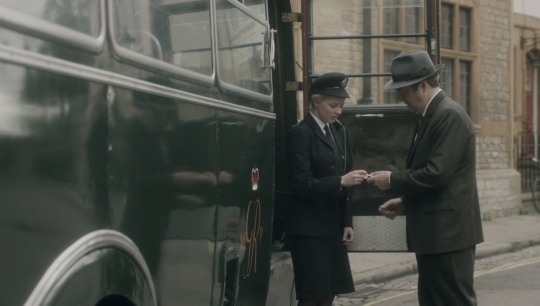
We get the first glimpse in in Coda when Thursday comforts Trewlove with the offer of a cigarette as she copes with the murder of a fellow officer:
THURSDAY: All right? TREWLOVE: They just shot him. Like it was nothing. THURSDAY: Here. For the nerves. Keep the pack. Stick 'em behind your notebook and nobody'll know. TREWLOVE: Thanks. THURSDAY: Tip my old governor gave me. Sergeant Vimes. Cable Street. “No Pasarán!” All right? Let’s have that jacket buttoned up, then. TREWLOVE: Sir.
It's such a little exchange, but it delights me in so many ways. There's the sweetness of the interaction between Thursday and Trewlove. There's the irony in hindsight of his "thoughtfulness" in helpfully encouraging her to smoke. There's the nod to Terry Pratchett's Discworld with the references to both "Sergeant Vimes" and "Cable Street." And finally there's the nod with “No Pasarán!” to the actual Battle of Cable Street that occurred in the East End of London in 1936.
A nostalgic reference to “No Pasarán!” is actually a bit ironic coming from a former Met officer. As the unfortunate party charged with keeping the two opposing sides "peaceful," the Met faced some of the worst violence on that day. However, Fred Thursday would not have experienced it as a police officer.
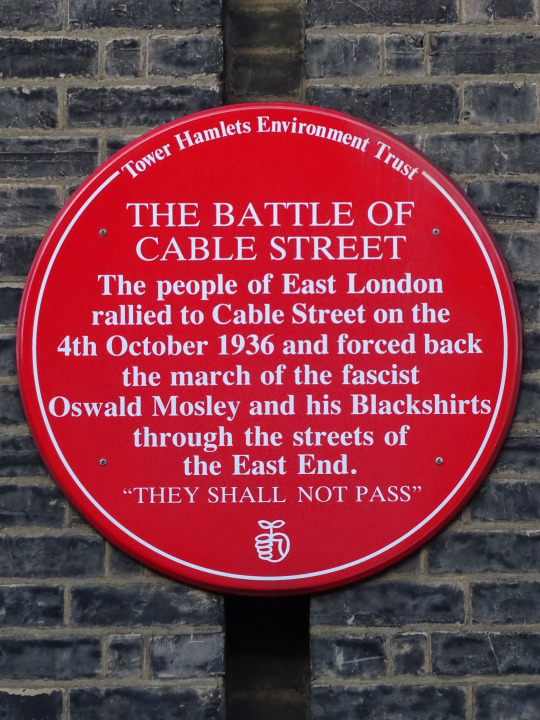
We know from the episode Home that he didn't join the police until two years later, in 1938. We find out in Cartouche though, that he did grow up near Shadwell Basin—about a ten minute walk from where the main showdown in the Battle of Cable Street occurred—so there's a good chance that Thursday would have witnessed the events of that day and maybe even participated.
Here's my understanding of what happened: The British Union of Fascists—a group openly aspiring to create a British state in the style of Hitler's Germany or Mussolini's Italy—attempted to stage a march through the middle of London's East End. Their leader was Oswald Mosley, a horrible but charismatic minor aristocrat with a Hitler-wannabe-mustache, his own cadre of paramilitary "Blackshirts," and—unbeknownst to him—a major problem in his ranks with deep infiltration by Special Branch.

Why the East End? It was the poorest area of the city and thus home to the most recent immigrants—in particular, the UK's largest Jewish population—many of whom had escaped rising persecution elsewhere in Europe. At the same time, the East End was also home to the Londoners hit hardest by the rising unemployment of the 1930s.
Mosley's rhetoric had finally become openly and unapologetically anti-Semitic in 1935 and the idea that Jewish immigrants were the ones responsible for stealing jobs from the "native" British was a simplistic explanation offered by the BUF that unfortunately resonated with many East Enders. So ultimately, the East End was home to both the main target and the BUF and some of its biggest supporters.
In October of 1936, Mosley planned for his Blackshirts and their supporters to march through the heart of the East End. Determined to both defend themselves from threats of violence and stop the march from passing through their community, Jewish leaders and others mobilized, successfully recruiting thousands of their East End neighbors and others allies to assist.

© Jewish East End Celebration Society
On the day of the march, despite a massive police escort, the BUF was turned back repeatedly. The slogan of the day, borrowed from the Republican fighters in the Spanish Civil War was, "They shall not pass" or "No Pasarán!”
Eventually, things came to a head at the junction of Cable Street and Christian Street. Multiple barricades were erected and the BUF marchers were pelted with rotted vegetables and the contents of chamber pots. It became a pitched battle at one point. Unable to break through the East End, Mosley was finally forced to relocate his followers to Hyde Park.
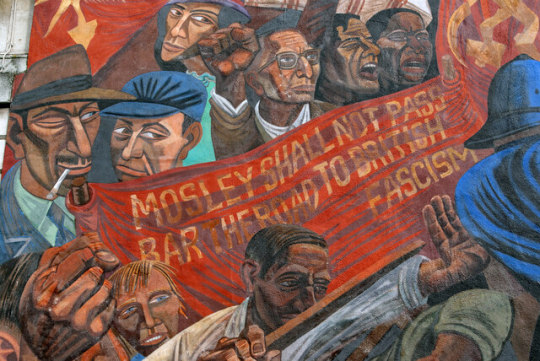
© Copyright Jim Osley Detail from a mural painted on the side of the former St George's vestry hall
S5E4: Colours
The Battle of Cable Street was a humiliation for the fascists and for Mosley, a victory for the Jewish community and their allies. Sadly, the happiness was very short-lived. Mosley was able to frame Cable Street in the press as an attack by the left on his right to free speech.
There was an immediate increase in support for the BUF in the greater London area, particularly in the East End, and an increase of violence against Jewish people in the UK. Oswald Mosley himself travelled to Germany only two days after Cable Street. There he married socialite Diana Mitford in a secret ceremony at the home of Joseph Goebbels with Hitler attending as the guest of honor.

Mosley and Mitford CC-BY-2.0
However, the increase in support that occurred right after Cable Street was brief in itself. As the threat of Nazi Germany became more apparent in the UK, the popularity of the BUF declined. Once the war began, the Mosleys were interned under a provision that applied to active Nazi sympathizers.
Post-war, Mosley attempted to once more find a place in politics but fortunately never moved beyond the fringe. He and his wife became prime movers in advancing various Holocaust denial theories and later espoused rather unpleasant opinions on topics such as the forced repatriation of immigrants and mixed-race marriages.
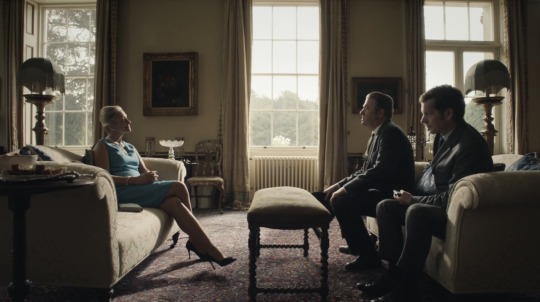
If this all sounds familiar, it's because it all crops up in the storyline of Colours where the character of Charity Mudford, Lady Bayswater is a stand-in for Diana Mitford. RL's dialogue very much captures the sheer banality of the real Diana Mitford's evil:
BAYSWATER: I can't change the past. If Winston hadn't been so eager for office, all the unpleasantness might have been avoided. My husband had Hitler's ear. We could have persuaded him. Softened his resolve. He wasn't immune to reason. THURSDAY: Charming conversationalist, no doubt. BAYSWATER: Actually, he was a very good mimic. Terribly witty. MORSE: Sir, is it time for that telephone call? To the station? I can take it from here. THURSDAY: The unpleasantness, as you call it, cost me six years of my life, and untold millions a great deal more.
S7E2: Raga
But we're not quite done yet. The BUF had a successor. The National Front was founded by a former member of the BUF who then joined forces with John Tyndall, the leader of the Greater Britain movement which had a big anti-immigration focus.
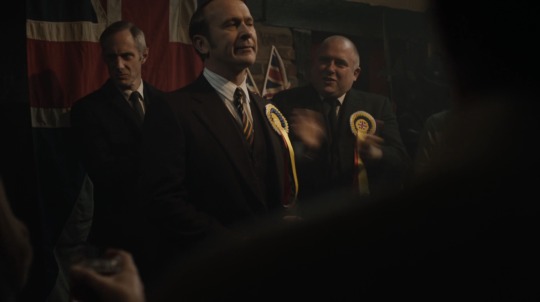
As with Jewish immigration a generation earlier, heavy South Asian migration to Britain in the 1970s made it an easy target for those seeking to pin all of the nation's economic and social problems on "outsiders."
The National Front eventually came out with an agenda that called for the revocation of citizenship for all non-whites in Britain and forcible repatriation to their "native" countries. NF rallies were frequently accompanied by violence whipped up by the kind of rhetoric we hear in Raga where the character of Gorman serves as a stand-in for Tyndall and his ilk:
THURSDAY: Well, we're very concerned about young Pakistani lads getting knifed on the street. GORMAN: Terrible. But I can't say that I'm surprised. You cram all of these incompatible cultures together on one small island, of course it's gonna lead to blood. And worse. MORSE: Sounds like a threat, Mr. Gorman. GORMAN: It's just an observation. If the police can't keep the streets safe and defend the indigenous population against outsiders, well, no wonder people take it into their own hands. Now, if you'll excuse me, I've got a seat to win.
If anyone sees anything that I've gotten wrong here, please let me know. This was my first time reading through any source material on this whole topic and it's complicated (and depressing as hell).
I haven't got any pithy, final point to make except to say that there are certain ideas that seem to cycle back with horrible regularity every time certain conditions are in place. They're wrong. They're simplistic. They're hateful. And they need to be stopped every time.
#itv endeavour#endeavour morse#endeavour: coda#endeavour: colours#endeavour: raga#meta#battle of cable street
68 notes
·
View notes
Text
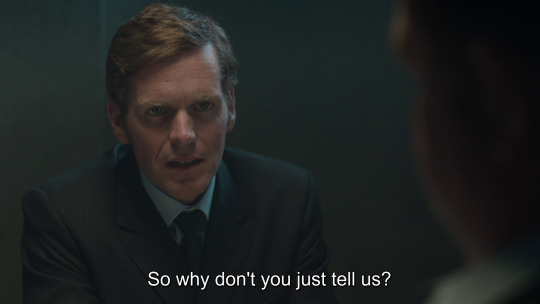

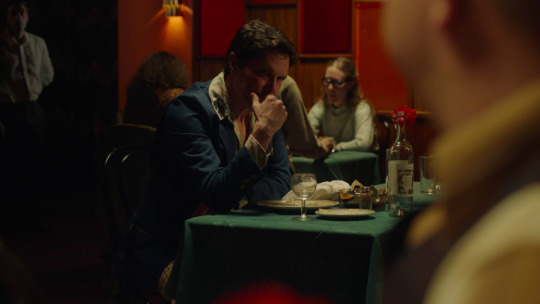

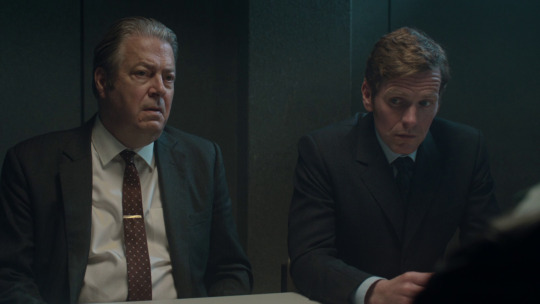
This absolutely sent me.
82 notes
·
View notes
Text
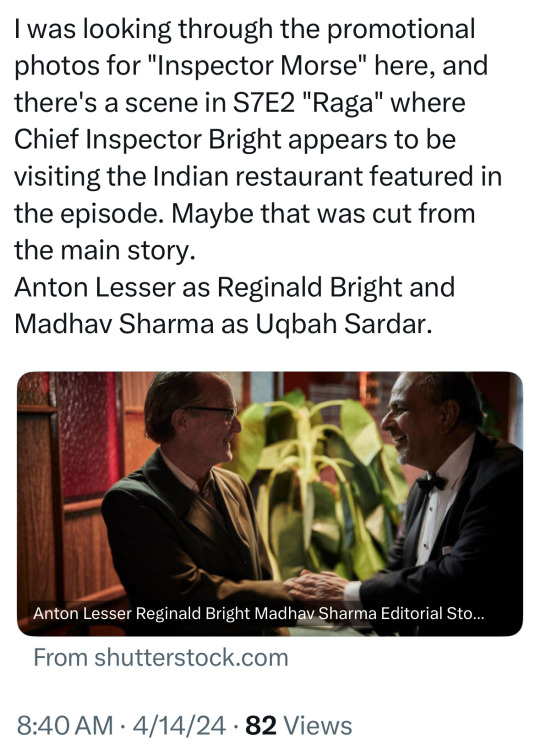
From my Twitter friend @suzy_221b
21 notes
·
View notes
Photo
Thoughts...
While it's always beneficial for Evans to be half-naked, I will repeat that this scene was full naked equivalent in terms of hotness. It might even exceed naked parameters.
Despite that, this scene is so hot that Evans could have been wearing a parka (not that I would ever encourage that sort of behavior) and I might not have noticed
I could write a multi-volume work on all the ways in which this scene is hot (his futile attempts at resistance, his ridiculous "just ignore her and maybe she'll go away" moment, closing that barn door after the horses have *galloped* out of the building... )
The things he does with his hands would have their own separate appendix






RAGA.
#itv endeavour#endeavour morse#shaun evans#half naked wednesdays#hnw#aka the wednesday special#endeavour: raga#violetta talenti#stephanie leonidas
257 notes
·
View notes
Text
I have nothing new for Half-Naked Wednesday.
In lieu of this, I submit to you,
Half-Ass Wednesday. 

You’re welcome.
#endeavour morse#shaun evans#endeavour itv#itv endeavour#sexy derrière#roger allam#fred thursday#beggars cant be choosers#even his ass can act#hot damn evans#S7: Raga#alls well with you?#always#my ass gives good face#and I’m all about that bass#baby got back#push it real good#vented jacket for the win#and I don’t mean Win Thursday#or maybe I do
18 notes
·
View notes
Text

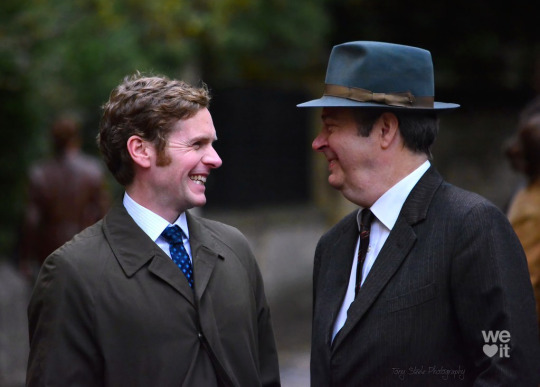
Shaun Evans and Roger Allam filming Endeavour series 7 film 2 Raga
© Tony Steele
#shaun evans#endeavour morse#roger allam#fred thursday#itv endeavour#photography#bts endeavour#endeavour series 7#raga
94 notes
·
View notes
Text


"See you tomorrow."
ENDEAVOUR | RAGA.
#endeavour#itv endeavour#endeavour itv#endeavour morse#fred thursday#shaun evans#roger allam#morse is a lying liar who lies all the time#the panic on his face when someone asks how he is lmao#my gifs#endeavour1
208 notes
·
View notes
Text
Explanation of Endeavour episodes' titles
i have come to notice many episodes were named with peculiar titles alluring to episode theme with undertone of dark academia symbolism, drawing words from mythology, music, art, culture, which adds to sense of elevated academia mannerism of whole narrative and setting.
I will not be commenting on how the name fits the story, for i do not wish to spoil anyone anything.
Fellow endeavour fans, feel free to add any other peculiar observation.
Season 1
ep.2. Fugue - In music, a fugue is a contrapuntal compositional technique in more than two voices, built on a subject that is introduced at the beginning in imitation and which recurs frequently in the course of the composition. (wikipedia)
-a musical composition in which one or two themes are repeated or imitated by successively entering voices and contrapuntally developed in a continuous interweaving of the voice parts. (merriam webster)
*i think that is that choir singing that builds up and always plays in background throughout the series
Season 2
ep.2. Nocturne - work of art dealing with evening or night especially : a dreamy pensive composition for the piano
Season 3
ep.4. Coda - a concluding part of a literary or dramatic work; serves as conclusion to events that need to be rounded out.
Season 4
ep.2. Canticle - a hymn or chant, body of text in bible or in Divine Comedy or other work that rhymes and it is one distinguished part of work; like chapter in book, but it rhymes.
ep.3. Lazaretto - quarantine for those with contagious illness; A lazaretto is a quarantine station for maritime travelers (from east that came to Venice mostly hence Lazaretto Island) Historically, lazarettos were used to control outbreaks of cholera and plague found on board visiting ships.
Season 5
ep.6. Icarus - boy who flew too high to sun so his wings made of wax melted and he fell into ocean and died. his father who made him wings to escape from minotaur's labyrinth, but boy ignored the warning striving for higher
Season 6
ep4. Degüello - spanish battle music, song that conveys hate and complete destruction of enemy without mercy, it also marks bringing an end to struggle that has been threatening to upend the familiar and safe, the return to normal
Season 7
ep2. Raga - traditional indian music
ep.3. Zenana -in muslim and hindu homes part of a house for the seclusion of women
Season 8
ep.2. Scherzo - in music composition type; short, lively piece of classical music which is usually part of a longer piece of music
-in british English it also means a joke, a prank (idk if this is true)
ep.3. Terminus (lat.) - the end of a railway or other transport route, or a station at such a point; a terminal.
-an extreme point of something
-a final goal : a finishing point
Season 9
ep3. Exeunt (lat.) - instruction written in a play indicating that a group of actors leave the stage
#endeavour#endeavour morse#endeavour series#endeavour itv#endeavour series titles#explained#dark academia#fred thursday#shaun evans#roger allam
21 notes
·
View notes
Text
The final poll! These were the favourite episodes from each of the individual series polls. If you thought picking your favourite from each series was hard... good luck picking an episode here! I'm certainly struggling! Please reblog, I'd love to get as many fans voting as possible! S1 poll had the most votes with 100, lets see if we can beat that! For the curious, the top 3 winners for each series:
Series 1: Fugue 57%, Home 21%, Overture (Pilot) 13% Series 2: Neverland 54.8%, Nocturne 22.6%, Trove 16.1% Series 3: Coda 35.4%, Ride 30.4%, Prey 20.3% Series 4: Canticle 57.7%, Harvest 23.1%, Lazaretto 15.4% Series 5: Icarus 31.8%, Quartet 22.7%, Colours, Passenger, Cartouche all with 13.6% Series 6: Degüello 71.4%, Pylon 17.9%, Apollo 7.1% Series 7: Zenana 63.9%, Raga 25%, Oracle 11.1% Series 8: Terminus 51.4%, Striker 31.4%, Scherzo 17.1% Series 9: Exeunt 55.9%, Uniform 38.2%, Prelude 5.9%
11 notes
·
View notes
Text
The Great S7 Rewrite: 7 July 2024 Update...
Posted this yesterday as a reblog update to the Great S7 Rewrite but now posting separately...

Here's a summary of where we are in the Great S7 Rewrite and some ideas moving forward:
Bone of Contention #1: Opera Rules
@astridcontramundum is in favor of keeping Opera Rules (voiceovers, framing scenes, etc.) as well as featuring more of the bespoke opera written for S7. I love her suggestion that Morse and Violetta have their own leitmotif!
@oeuvrinarydurian suggested the possibility of leaning into Opera Rules—going a little crazy with tropes and techniques and being fanciful.
I *love* the idea of leaning into Opera Rules and it’s actually what I’ve thought R.L. should have done all along. Now though, when I think of doing it within the context of the existing storylines we’re working with, I run into difficulties imagining it. The stories don’t fit into a “playful” world. That may simply be my own limitations. I’d love to see it done somewhere, sometime—especially somewhat whimsically and especially in the Morse universe.
One possibility I’ve considered is still having Opera Rules (voiceovers, framing scenes, etc. as well as opera tropes and themes), but actually taking them seriously instead of making them OTT. I’m heavily paraphrasing, but Astrid, in one of her stories has Bix say something like, “Real life isn’t like one of your operas,” to Morse. And it’s always struck me that for Morse, his real life *is* like one of his operas. His childhood? Being essentially orphaned. Evil stepmothers. Oxford? Almost marrying the princess so to speak. Being cast aside and cast out. What he sees at his job? Murder. Betrayal. Greed. Jealousy. Grief.
Basically, instead of making Morse’s life suddenly work according to Opera Rules, you could show how Morse has been living an opera all along by suddenly making all of the parallels visible.
Another thought that builds on Astrid’s idea about both Opera Rules and her later thoughts on the Towpath Case is to center the story on the opera that Morse attends at the beginning, "La Sposa del Demonio" (or "La Cura Per L'amore"). What if the story of that opera is reflected in the story arc of the Morse, Ludo, Violetta—whatever that ends up being?
Bone of Contention #2: Ludo and Violetta?
Astrid likes the idea of having Violetta genuinely in love with Morse.
@librawritesstuff brings up Violetta as “Unattainable Fantasy Woman” and points out that part of Morse’s attraction to her can be explained by the fact that by the end of S6, he’s been screwed over in just about every way possible. He’s ready to just say fuck it and go after something just because it’s there and he wants it for a change.
She then points out that the bigger problem with Ludo and Violetta lies in the implausibility of their storyline. What was the plan with Morse? Was there a plan? What’s the deal with the “pet policeman”?
Durian: Hates Ludo and Violetta as characters, but her big issue is with lack of logic in the whole opera storyline and too many implausibilities. Did Morse and Violetta meet at the opera by chance or design? Did Ludo know about them the whole time? What was the “pet policeman” about? Was Violetta actually involved in the nuts and bolts of engineering the accidents?
@fanficrocks Looks at making Morse’s relationship with Ludo more believable: less OTT as a character, maybe journalist friend of Dorothea, this gives a believable reason for him to be in all of the towns where the accidents happen and believable way for Morse to trace the accidents to him. Suggests possibly lose “pet policeman” concept and just have Ludo and Morse friendship poisoned by affair
Astrid again: Loves idea of Ludo as journalist; She notes with Violetta: Morse attaching to her out of recklessness seems reasonable but they didn’t make her attachment to him believable in any way. Also, while there was a reconciliation at the end of S6, Morse would have still been carrying resentment about having been pushed aside
I love the idea of Ludo as a journalist. I’m also intrigued by the possibility that he could be a music journalist. This would provide a plausible explanation for so many things—Dorothea introducing him to Morse, Morse actually wanting to become friends, his frequent travels, etc.
It also gives me an idea re: the big opera La Sposa. What if it were a newly discovered opera? Morse goes to Venice for the premier. Ludo is there covering the premier but for some reason does not attend with Violetta. The plot of this opera could somehow also form a backdrop for the overall Morse, Ludo, Violetta story arc (story within a story).
I completely agree with Libra about the “Unattainable Fantasy Woman” thing for the initial two week affair. Where that starts to break down for me is with the extended affair and her cooking meals for them in their love nest at Beirut dancer’s apartment. There just seems to be no basis for their connection besides sex. Certainly not enough that he would be expecting her to leave Ludo and start a life together.
If we keep Ludo and Violetta as characters, which seems to be the way things are leaning, I do think they both more or less need personality transplants to justify Morse’s continued interest in them. I’m also with Astrid on having Violetta genuinely in love with Morse. I think they left it ambiguous in the show because they were playing on the whole idea of “If it's beautiful, does it matter if it’s real?” (“treason of images” ) thing, but it never really worked.
As for the overall implausibility of overall opera storyline: Yes!!!! It’s a mess. Every point raised by Libra and Durian is valid. Whatever happens with the storyline, those holes need fixing!
Bone of Contention #3: Towpath Storyline
Astrid: Universe within universe for towpath killings. Make it opera related. Gives more scope for Thursday/Morse conflict. Deranged fan? Thwarted performer? Also, while there was a reconciliation at the end of S6, Morse would have still been carrying resentment about having been pushed aside.
Durian: Eliminate clutter in Towpath mystery: get down to “is it or is it not Carl?” Leaves room to carefully craft the conflict between Morse and Thursday
I definitely agree that the clutter in the Towpath mystery needs to be eliminated. There was no clear throughline and the story pulled in too many directions. The specifics, though, depend on a lot of other decisions that need to be made first.
The conflict between Morse and Thursday definitely needs to be more carefully established. How do we get from the seeming reconciliation of Degüello to sniping at each other in Oracle? I completely agree with Astrid that Morse would have still been carrying resentment, but there needs to be something more to explain how it would erupt in such a public and painful manner.
Bone of Contention #4: The Episodic Storylines
Astrid: “I’d definitely keep those gay wrestlers! I might feature them more! They could be another nod to it all. Thursday said wrestling was a lot like opera. Heroes and Villains. Faces and Heels.”
I love this comment! And I loved the gay wrestlers. They were just so unexpected and their presence was so understated in a way that I found hilarious.
But it also gets at one of the themes of S7 that I did actually find interesting: How chance puts us on one side or the other, makes us winners or losers in the great game. Raga is the most blatant about it with politics, immigration, race, gambling, etc. but also with the Faces and the Heels in wrestling or the fate of the firstborn son vs. the second born.
Ludo sums it up—while also perhaps referring to his crimes—by saying to Morse, “Life, death, rich, poor. It's all a roll of the dice, Morse. There's no reason to any of it. You're not responsible. Some people are just unlucky.” It's eerily reminiscent of Charlie and Conrad Greel in Ride.
OK, I think that's it for now. Please let me know if I misrepresented your comments in any way or missed something that was said! I assure you it was accidental.
#itv endeavour#endeavour morse#shaun evans#the great s7 rewrite#endeavour: series 7#endeavour: oracle#endeavour: raga#endeavour: zenana
55 notes
·
View notes
Text
This one gets me every time. My god, he is just perfect.
New fidgets incoming soon I promise but in a week of recycled content I figured it was perfect timing to reintroduce this rather stunning exhibit…
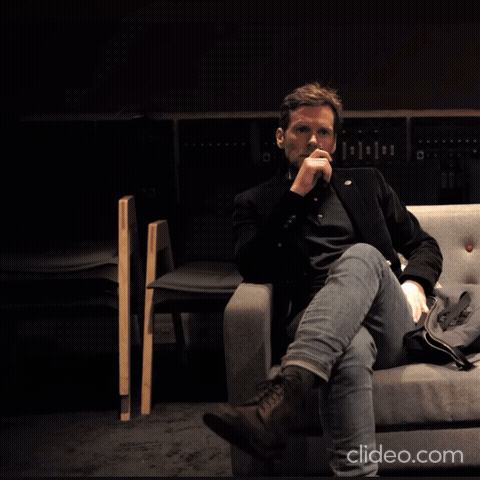
Gif by @librawritesstuff
#itv endeavour#endeavour morse#shaun evans#fidget friday#classic pen fidget#pen fidget hall of fame#raga music recording session#he is a work of art
21 notes
·
View notes
Text


I just love it how Fred goes from a disheveled guy to an ageless seducer within a s e c o n d
#endeavour#both in terms#of#roger allam#and#fred Thursday#endeavour: raga#itv Endeavour#endeavour morse#my edit#thekenobeeedit
33 notes
·
View notes
Text



One year ago, Endeavour 7 filming September 2019
Photos copyright: Kati Dahlmann
97 notes
·
View notes
Photo










I’m not very good at forgiveness.
#perioddramaedit#endeavouredit#endeavour#endeavour morse#max debryn#fred thursday#endeavour: season 7#raga#*endcine#mygifs
211 notes
·
View notes
Photo
I saw an angel
Of that I'm sure


RAGA.
103 notes
·
View notes
Text
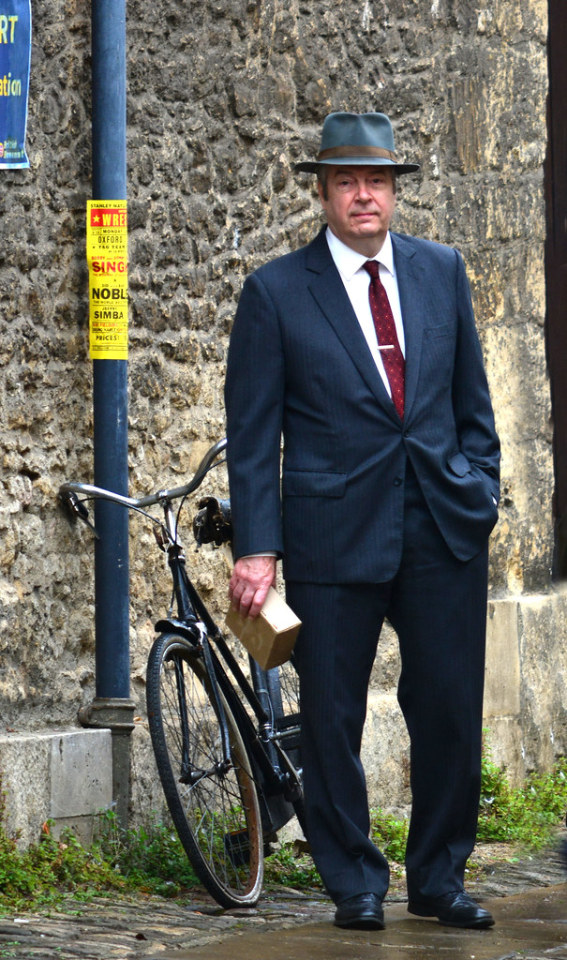
Roger Allam filming Endeavour S7F2 Raga ©Tony Steele
47 notes
·
View notes